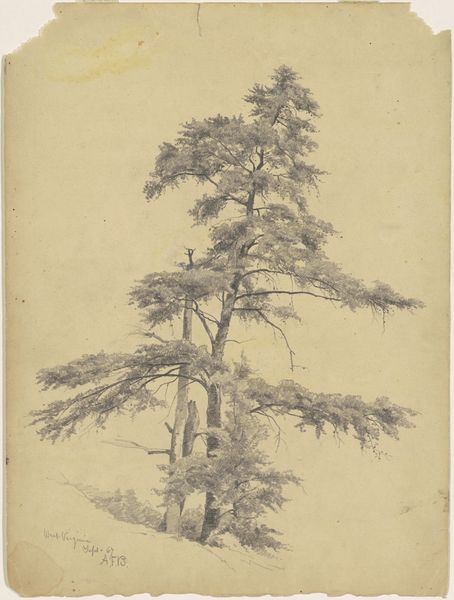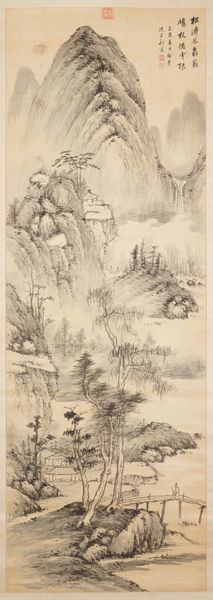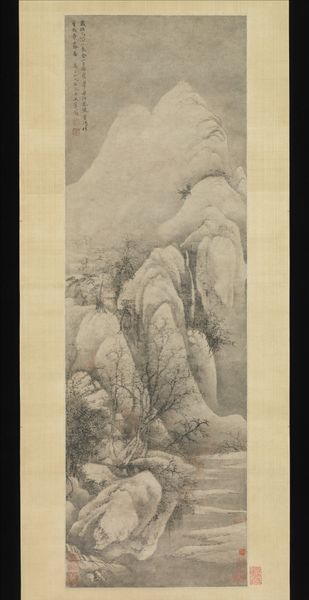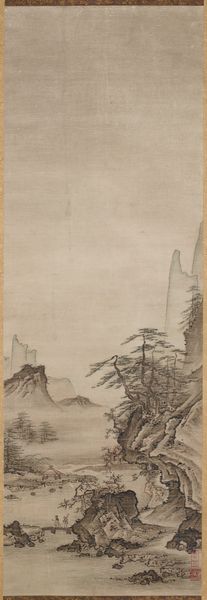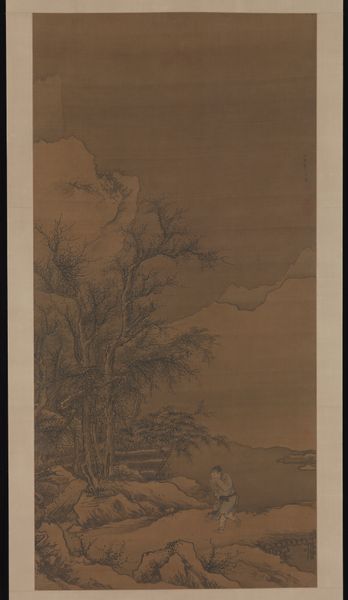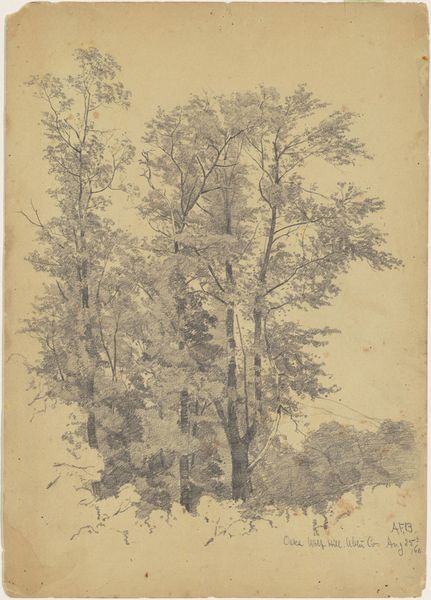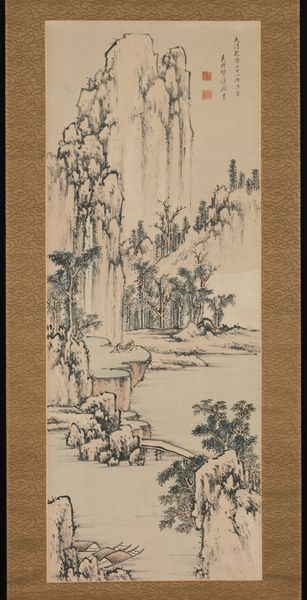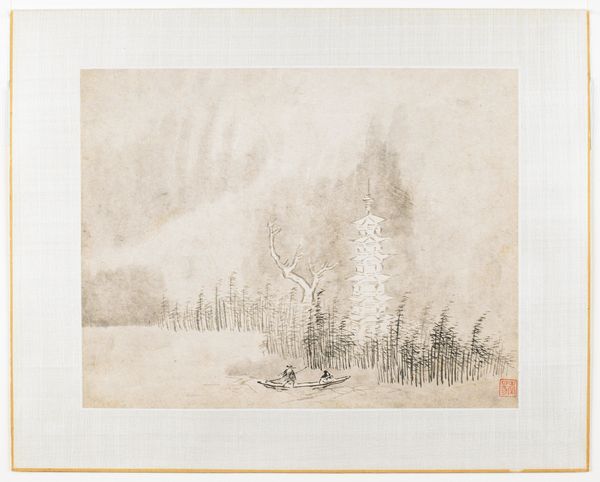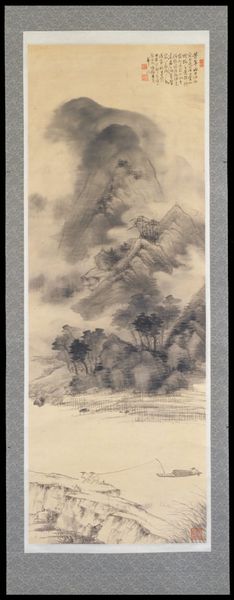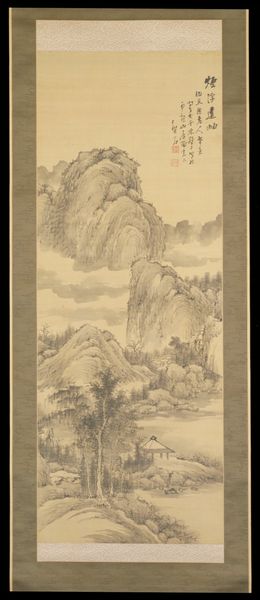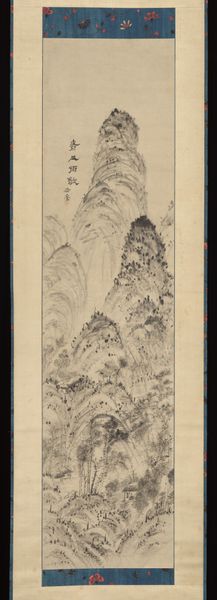
drawing, tempera, ink
#
drawing
#
tempera
#
asian-art
#
landscape
#
ink
#
orientalism
#
line
Dimensions: 48 9/16 x 20 7/8 in. (123.4 x 53.1 cm)
Copyright: Public Domain
Curator: It looks like a dream. Kind of lonely, but also peaceful, with this lone little boat just...existing. There’s such softness, almost like a memory fading. Activist: Precisely, that’s a great point, this ink and tempera drawing comes to us from Kusumi Morikage; its creation spanned from 1620 to 1690, situating it within a period of significant artistic transition in Japan. The "Landscape," as it’s titled, invites a deeper contemplation of humans relationship to the natural world. Curator: It makes you wonder who's in that boat, where they are going. It’s like, are they adrift, or are they headed somewhere with intention? You know, like our own lives, drifting and intending, and just existing. Activist: That juxtaposition you're feeling mirrors the broader societal themes of the Edo period. The focus on landscape art emerged in part from the political climate and the longing for an idealized nature—a space free from societal constraints. In a very real sense, humans do not appear to occupy this scene so this makes you ask, what, ultimately is our purpose in an untouched world? Curator: Absolutely, I get that sense. You see those pagoda-like houses along the banks and they seem swallowed, almost threatened, by the scale of the cliffs, which are the focal point. This landscape doesn't feel entirely human, though there is evidence humans made their presence there. But again the world keeps existing, untouched. It’s really making you reflect about purpose, place, belonging and time...like the boat, drifting or intentionally steering away... Activist: Morikage’s use of line and wash, while evocative of traditional techniques, hints at new aesthetic developments in appreciating orientalism as he merges internal thoughts with the surrounding natural environments. It mirrors society. And ultimately the question comes: Who dictates the direction in our boats, in our lives, and why is there an almost need to flee a past or seek to create something different than the past? Curator: Right! Okay. This was beautiful; I think I will take a bit of this peace with me. Thanks! Activist: I appreciate that the piece has you considering these points with me! It's a testament to art's power to provoke dialogue.
Comments
No comments
Be the first to comment and join the conversation on the ultimate creative platform.

